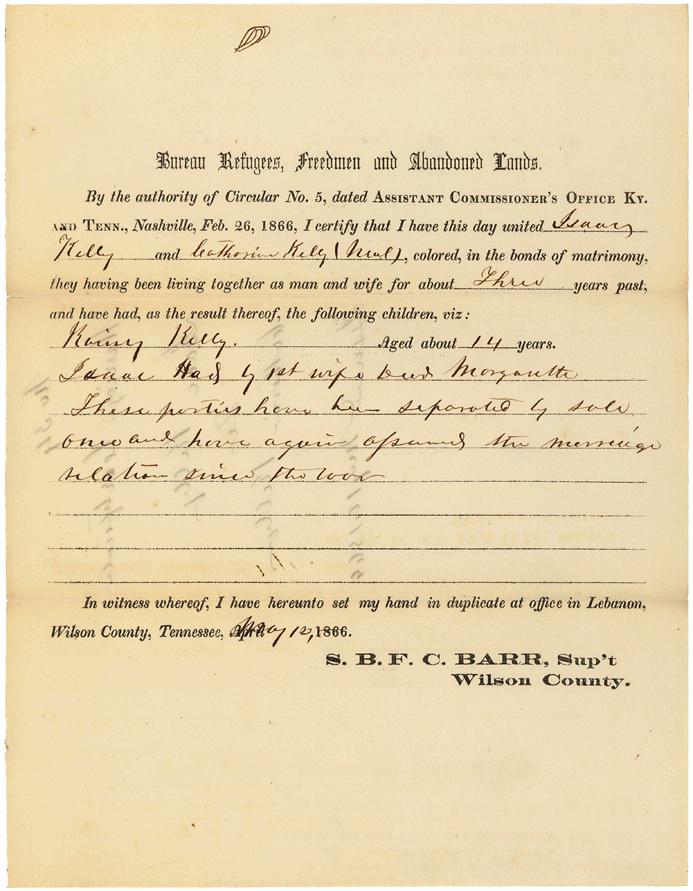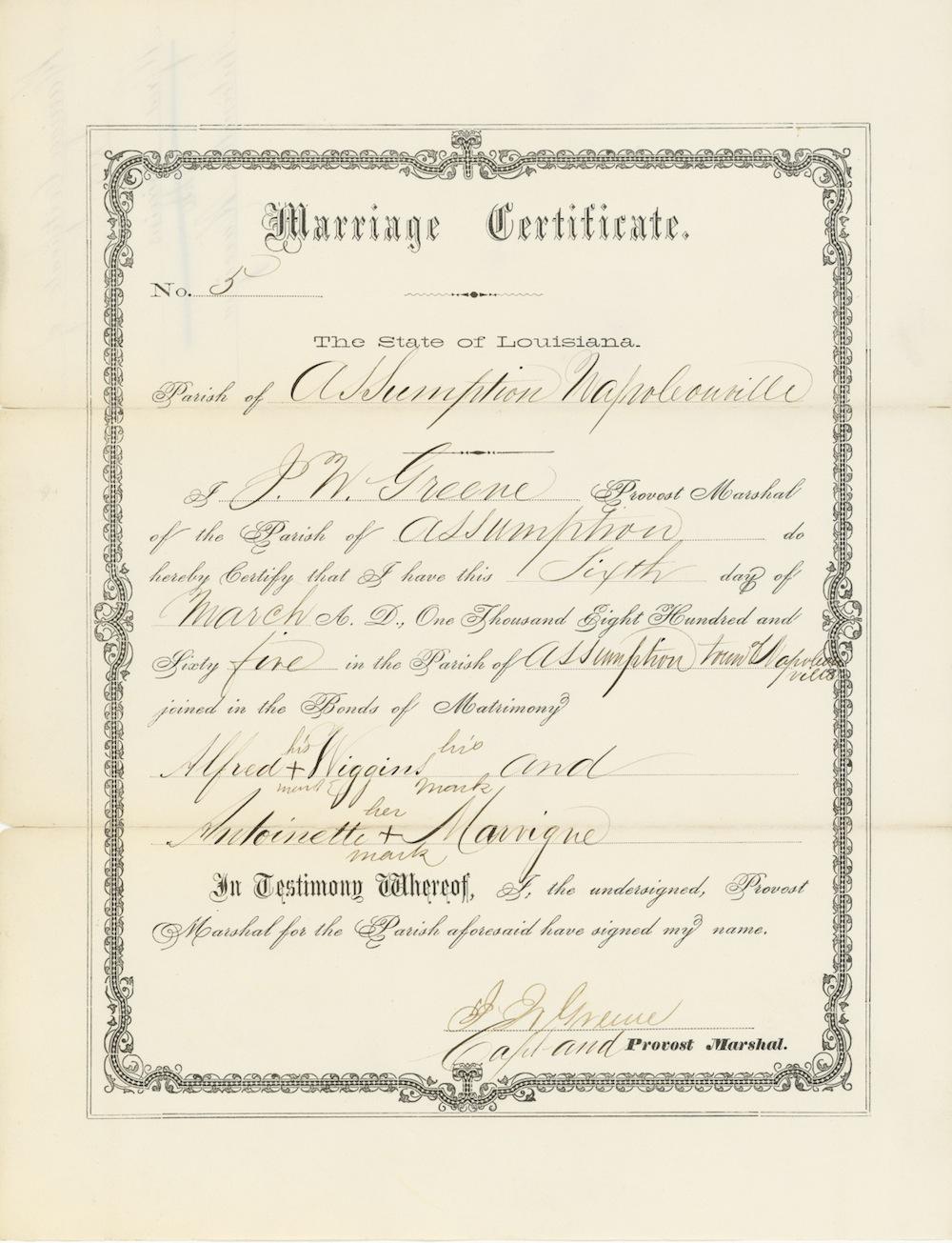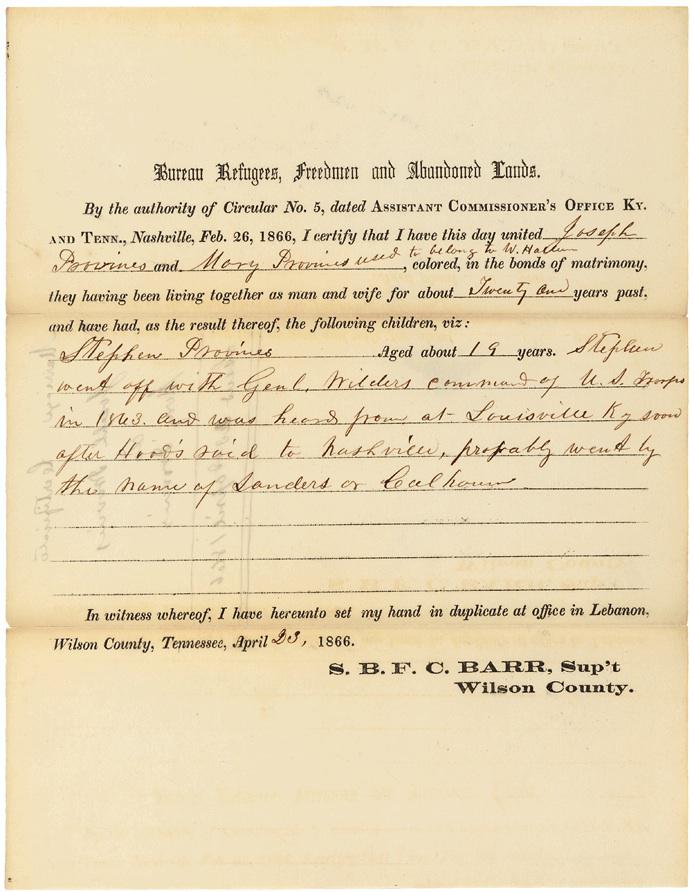The Vault is Slate’s history blog. Like us on Facebook, follow us on Twitter @slatevault, and find us on Tumblr. Find out more about what this space is all about here.
Here are three marriage certificates for formerly enslaved people, out of the many in the records of the National Archives. In their tallies of children borne and notes about separations through sale and military service, such certificates tell small histories of families’ lives under slavery.
Two were issued under the auspices of the Freedman’s Bureau (the Bureau of Refugees, Freedman, and Abandoned Lands), the federal agency that assisted emancipated slaves in a broad range of post-war needs, including legal matters like settling emancipees on land, securing back pay for soldiers, and solemnizing informal marriages.
The Freedman’s Bureau’s policy on marriages had to take into account the shifting circumstances of life under slavery. Rules issued in August, 1865, for the Bureau in South Carolina, Georgia, and Florida, stipulated a course of action for prospective spouses who had been previously married, but had no idea what had happened to their partners. If such prospective spouses could
produce satisfactory evidence of having been separated from their companions by slavery for a period of three years, and that they have no evidence that they are alive; or, if alive, that they will ever, probably, be restored to them, they may be allowed to marry again.
In his reading of black Union veterans’ applications for pensions, historian Donald R. Shaffer found evidence that a good portion of emancipated former slaves chose not to get legally married, even once they had a chance to do so. Shaffer argues that tradition—“the belief of some former slaves in the sanctity of informal unions”—was strong, and the cost of the license could be prohibitive. Likewise, some chose to marry in their community churches, without bothering to receive government sanction.

National Archives.
My transcript of notes section: “Isaac had a 1st wife named Margarette. These parties have been separated by sale once and have again opened the marriage relation since the war.”

National Archives.

National Archives.
My transcript of notes section: “Stephen went off with Genl. Wilders command of US Troops in 1863 and was heard from at Louisville Ky soon after Hood’s raid to Nashville, probably went by the name of Sanders or Calhoun.”